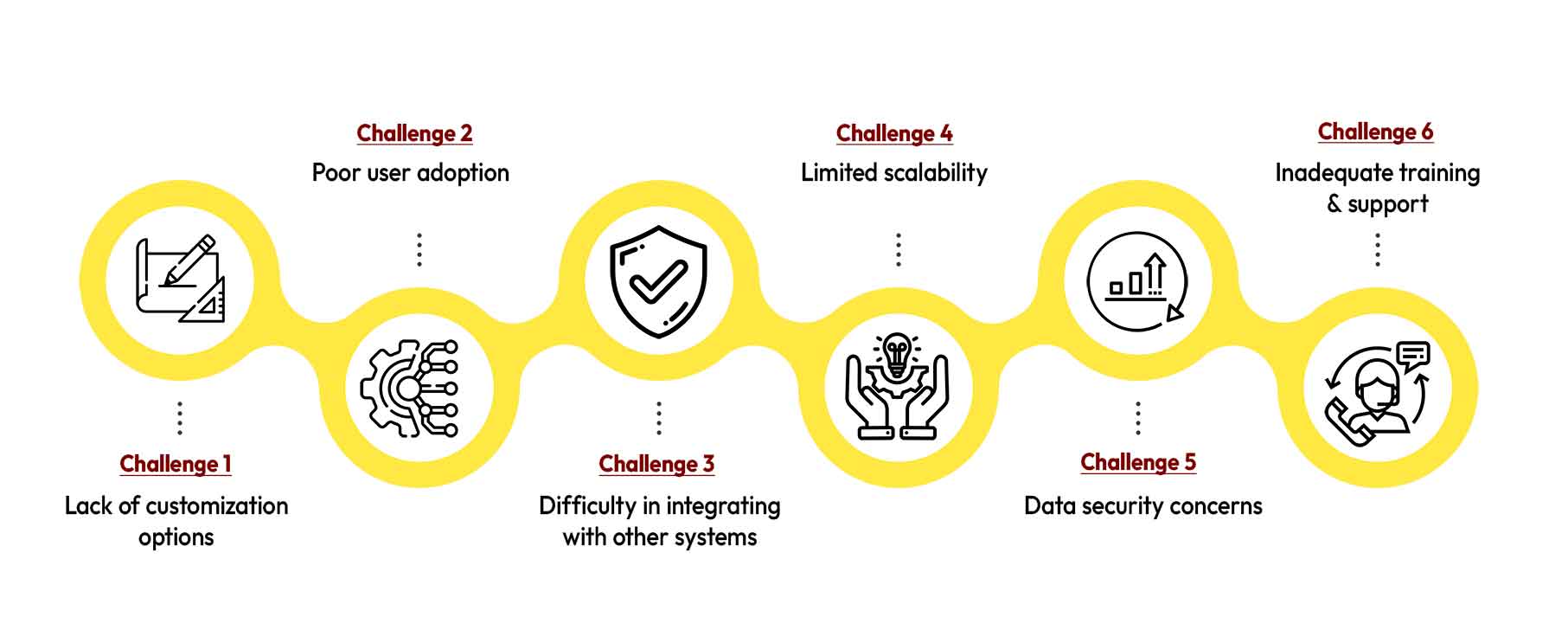You understand as a business owner how important Enterprise Resource Planning (ERP) software is to the smooth operation of your company. ERP software is made to centralize your company’s data, streamline operations, and aid in decision-making. ERP software can provide considerable obstacles despite its advantages. I’ll go over six typical challenges with ERP software in this article, along with solutions.
Introduction to ERP software
ERP software is a suite of applications that help businesses manage their operations, including finance, accounting, human resources, supply chain, and customer relationship management. ERP software allows businesses to streamline their operations, improve efficiency, and make better decisions based on real-time data. This software can be deployed on-premises or in the cloud, depending on the business needs.
The importance of ERP software in business operations
Since it offers a centralized platform for all business data, ERP software is essential to business operations. Businesses may eliminate data silos, streamline manual procedures, and enhance operational visibility with ERP software. ERP software provides real-time data and analytics to assist businesses in making better decisions. ERP software can also enhance collaboration between various teams and departments, resulting in increased production and communication.
Common challenges faced by businesses with ERP software
Despite the advantages of ERP software, deploying and using the software can present many difficulties for firms. Here are eight typical issues with ERP software and solutions.

Lack of customization options
Standard features and functionalities of ERP software may not be appropriate for all types of enterprises. To satisfy their specific demands, certain firms might need adaptations. However, it can be costly and time-consuming to customize ERP software. A lack of customization possibilities might reduce ERP software’s performance and keep firms from attaining their objectives.
To address this issue, companies should discuss their customization requirements and available solutions with the provider of their ERP software. Some ERP software providers offer customization services, while others might have an add-ons and extensions market where users can expand the software’s functionality.
Difficulty in integrating with other systems
Although ERP software is meant to centralize all corporate data, some companies also use other software that must be integrated. Integration might be difficult when the software systems come from different suppliers and employ various technologies. Information silos, manual procedures, and inefficiencies can result from a lack of integration.
Businesses should collaborate with the ERP software provider to define the integration requirements and consider the choices toto address this difficulty. While some ERP software providers provide integration services, others might already have built-in connections with well-known software platforms.
Data security concerns
Financial data, customer data, and employee data are among the sensitive business data in ERP software. Businesses must pay close attention to data security because any leak could have serious repercussions. Data loss, theft, and unauthorized access are all consequences of inadequate data security procedures.
To address this issue, businesses should put strong data security measures in place, such as encryption, access controls, and frequent backups. Companies should coordinate with the ERP software provider to ensure that the program complies with applicable laws and standards.
Poor user adoption
ERP software is only useful if every person in the company utilizes it. ERP software’s performance can be constrained by poor user adoption, which can keep firms from reaching their objectives. If employees are not given proper training or if the ERP software is difficult to use, they may not use it.
Businesses should spend money on user support and training to ensure that all staff feels confident using the program to address this issue. To acquire their input and buy-in, businesses should involve employees in deploying ERP software.
Limited scalability
ERP software should be flexible enough to adapt to the needs of the business as it grows. ERP software’s usefulness might be constrained by its limited scalability, which can keep firms from accomplishing their objectives. As a business grows, it may outgrow its ERP software or need new features and functionalities.
To overcome this ERP software challenge, businesses should work with their ERP software vendor to ensure the software can scale with their business needs. Businesses should also regularly review their ERP software and identify areas where additional features or functionalities may be required.
Inadequate training and support
Employees may need training and help properly using ERP software because it can be complicated. Lack of assistance and training can reduce the efficacy of ERP software and keep firms from accomplishing their objectives. Additionally, employees can stop using the product out of frustration.
To overcome this challenge, businesses should invest in user training and support to ensure all employees are comfortable using the software. Businesses should also work with their ERP software vendor to ensure that they have access to adequate support resources.
Overcoming ERP software challenges
To overcome ERP software challenges, businesses should take a proactive approach to software implementation and use. Businesses should work with their ERP software vendor to identify their unique needs and explore available customization options. Businesses should also invest in user training and support to ensure all employees are comfortable using the software.
To protect critical business data, businesses should also establish strong data security procedures. Finally, companies should periodically assess their ERP software to spot any areas where more features or functionalities could be needed.
Conclusion – Why overcoming ERP software challenges is crucial for business success
Although ERP software is essential to business operations, may also provide serious difficulties. Businesses that cannot address these issues risk limiting the ERP software’s performance and failing to meet their objectives. Businesses can overcome these difficulties and succeed by adopting a proactive approach to adopting and using ERP software.



